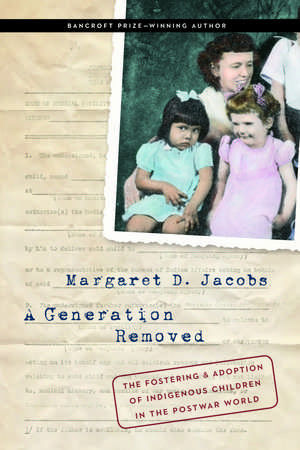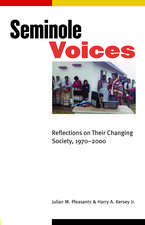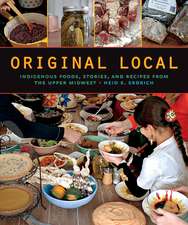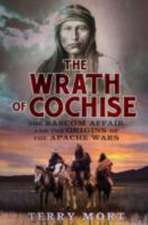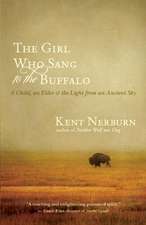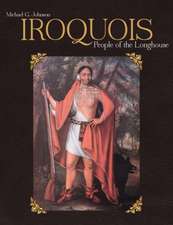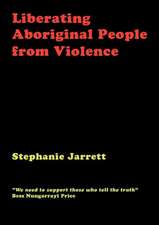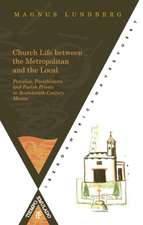A Generation Removed: The Fostering and Adoption of Indigenous Children in the Postwar World
Autor Margaret D. Jacobsen Limba Engleză Paperback – aug 2023
In A Generation Removed, a powerful blend of history and family stories, award-winning historian Margaret D. Jacobs examines how government authorities in the post–World War II era removed thousands of American Indian children from their families and placed them in non-Indian foster or adoptive families. By the late 1960s an estimated 25 to 35 percent of Indian children had been separated from their families.
Jacobs also reveals the global dimensions of the phenomenon: these practices undermined Indigenous families and their communities in Canada and Australia as well. Jacobs recounts both the trauma and resilience of Indigenous families as they struggled to reclaim the care of their children, leading to the ICWA in the United States and to national investigations, landmark apologies, and redress in Australia and Canada.
| Toate formatele și edițiile | Preț | Express |
|---|---|---|
| Paperback (1) | 257.25 lei 6-8 săpt. | |
| Nebraska – aug 2023 | 257.25 lei 6-8 săpt. | |
| Hardback (1) | 335.44 lei 6-8 săpt. | |
| Nebraska – sep 2014 | 335.44 lei 6-8 săpt. |
Preț: 257.25 lei
Nou
Puncte Express: 386
Preț estimativ în valută:
49.23€ • 51.46$ • 41.60£
49.23€ • 51.46$ • 41.60£
Carte tipărită la comandă
Livrare economică 07-21 martie
Preluare comenzi: 021 569.72.76
Specificații
ISBN-13: 9781496235435
ISBN-10: 1496235436
Pagini: 402
Ilustrații: 14 photographs, 1 illustration, 1 table, index
Dimensiuni: 152 x 229 x 28 mm
Greutate: 0.59 kg
Editura: Nebraska
Colecția University of Nebraska Press
Locul publicării:United States
ISBN-10: 1496235436
Pagini: 402
Ilustrații: 14 photographs, 1 illustration, 1 table, index
Dimensiuni: 152 x 229 x 28 mm
Greutate: 0.59 kg
Editura: Nebraska
Colecția University of Nebraska Press
Locul publicării:United States
Notă biografică
Margaret D. Jacobs is Chancellor’s Professor of History at the University of Nebraska–Lincoln. She is the author of the Bancroft Prize–winning White Mother to a Dark Race: Settler Colonialism, Maternalism, and the Removal of Indigenous Children in the American West and Australia, 1880–1940 (Nebraska, 2009) and After One Hundred Winters: In Search of Reconciliation on America’s Stolen Lands, among other books.
Cuprins
List of Illustrations
Acknowledgments
A Note on Terms
Abbreviations
Simon Ortiz’s Question
Introduction
Prologue
Part 1. Taking Care of American Indian Children
Modern Indian Life
Chapter 1. The Bureaucracy of Caring for Indian Children
Dana’s Story
Chapter 2. Caring about Indian Children in a Liberal Age
Part 2. The Indian Child Welfare Crisis in Indian Country
John’s Story
Chapter 3. Losing Children
Meeting Steven Unger
Chapter 4. Reclaiming Care
Interviewing Bert Hirsch and Evelyn Blanchard
Chapter 5. The Campaign for the Indian Child Welfare Act
Part 3. The Indian Child Welfare Crisis in a Global Context
Tracking Down the Doucette Family
Chapter 6. The Indigenous Child Welfare Crisis in Canada
Meeting Aunty Di
Chapter 7. The Indigenous Child Welfare Crisis in Australia and Transnational Activism
Finding Russell Moore
Chapter 8. Historical Reckoning with Indigenous Child Removal in Settler Colonial Nations
Afterword
Notes
Bibliography
Index
Acknowledgments
A Note on Terms
Abbreviations
Simon Ortiz’s Question
Introduction
Prologue
Part 1. Taking Care of American Indian Children
Modern Indian Life
Chapter 1. The Bureaucracy of Caring for Indian Children
Dana’s Story
Chapter 2. Caring about Indian Children in a Liberal Age
Part 2. The Indian Child Welfare Crisis in Indian Country
John’s Story
Chapter 3. Losing Children
Meeting Steven Unger
Chapter 4. Reclaiming Care
Interviewing Bert Hirsch and Evelyn Blanchard
Chapter 5. The Campaign for the Indian Child Welfare Act
Part 3. The Indian Child Welfare Crisis in a Global Context
Tracking Down the Doucette Family
Chapter 6. The Indigenous Child Welfare Crisis in Canada
Meeting Aunty Di
Chapter 7. The Indigenous Child Welfare Crisis in Australia and Transnational Activism
Finding Russell Moore
Chapter 8. Historical Reckoning with Indigenous Child Removal in Settler Colonial Nations
Afterword
Notes
Bibliography
Index
Recenzii
“Illuminating. . . . Jacobs’s history is essential and timely reading.”—Beth H. Piatote, Journal of American History
"This is a moving, significant book. Justice, Jacobs explains, will come only when nonindigenous people acknowledge the damage done. A Generation Removed makes a major contribution toward bringing the story to light. It remains for the rest of us to read and teach it."—Sherry Smith, Western Historical Quarterly
“[Jacobs] effectively elucidates the complicated policies surrounding the Indigenous child welfare crisis in a mesmerizing narrative that highlights how it’s not just an ‘American Indian story . . . but a profoundly American one.’”—Elise Boxer, South Dakota History
"A Generation Removed is an important book that effectively researches and narrates a difficult and upsetting topic that has been all but ignored by mainstream American society for far too long."—Akim Reinhardt, Nebraska History
"A Generation Removed is a powerful eye opener, covering a piece of history we push under the carpet at our own peril."—Alan Porter, Saskatchewan History
"A solid account that calls for "a full historical reckoning" of this devastating chapter in the treatment of Native Americans."—Kirkus
“Margaret Jacobs once again demonstrates her genius for writing history that combines penetrating analysis with heart-wrenching stories. Beautifully written, deeply researched, this important and amazing book examines a subject largely unknown to the public at large but all too familiar to Indigenous peoples who have suffered the pain and indignity of child removal.”—David Wallace Adams, author of Education for Extinction: American Indians and the Boarding School Experience, 1875–1928
“Jacobs brings deep scholarship to a topic of searing national and transnational importance. In a respectful, clear voice, she guides the reader on a journey into the most intimate corridors of settler colonialism. This is a complex and often heart-wrenching history that provides salutary lessons for the future.”—Ann McGrath, director of the Australian Centre for Indigenous History at Australian National University and coauthor of How to Write History That People Want to Read
“Using compelling stories and weighty evidence, Jacobs has uncovered a modern and ongoing story of child-stealing in the United States. She lays out the shocking history of Native American adoption and the good liberal logic that enabled it in a page-turner of a book.”—Anne F. Hyde, Bancroft Prize–winning author of Empires, Nations, and Families: A History of the North American West, 1800–1860
Descriere
A Generation Removed is an examination of the post–World War II international phenomenon of governments taking Indigenous children away from their primary families and placing them with adoptive parents in the United States, Canada, and Australia.
